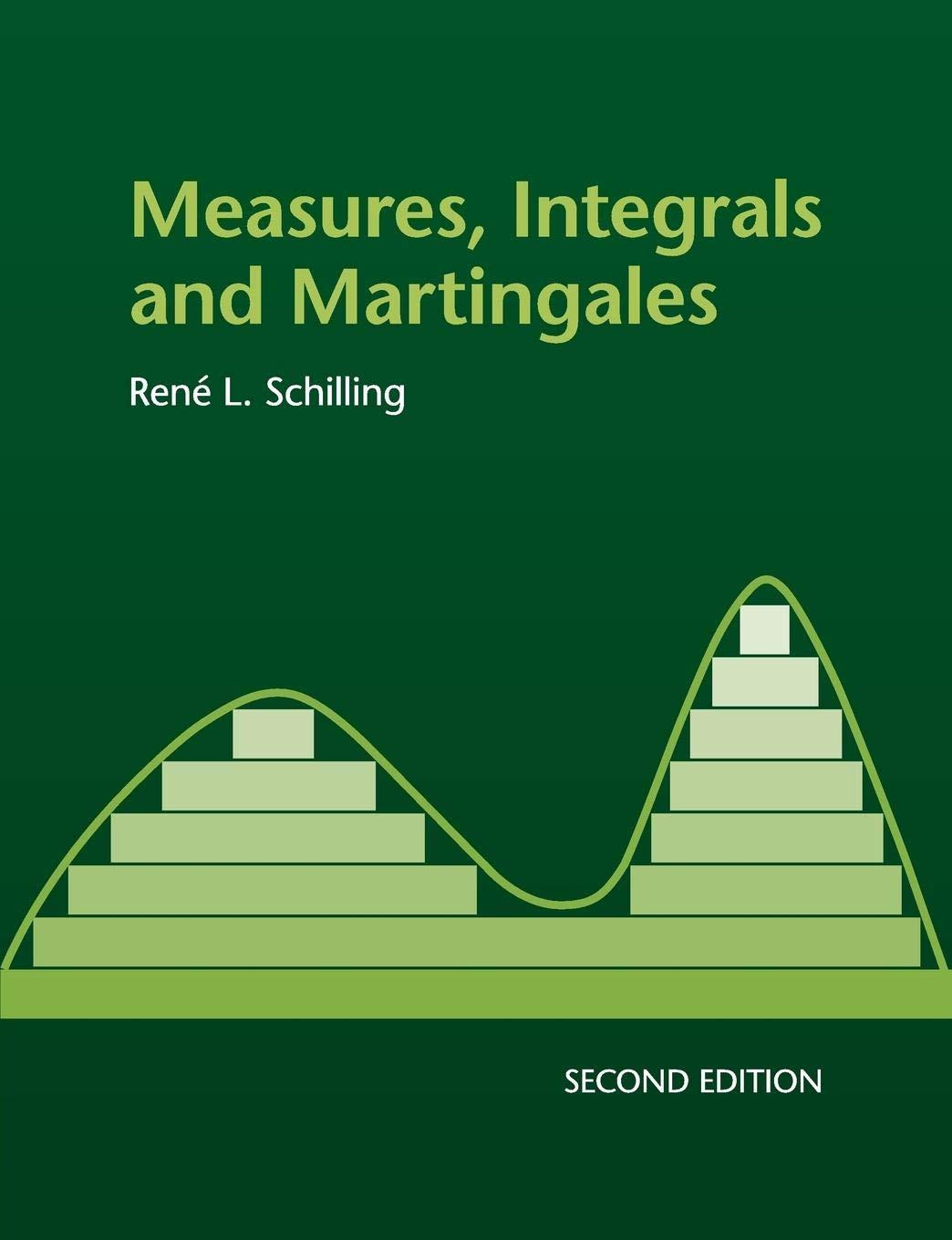Let ((Omega, mathscr{A}, mathbb{P})) be a probability space. Define for two random variables (xi, eta) [ho_{mathbb{P}}(xi, eta):=inf
Question:
Let \((\Omega, \mathscr{A}, \mathbb{P})\) be a probability space. Define for two random variables \(\xi, \eta\)
\[ho_{\mathbb{P}}(\xi, \eta):=\inf \{\epsilon>0: \mathbb{P}\{|\xi-\eta| \geqslant \epsilon\} \leqslant \epsilon\}\]
(i) \(ho_{\mathbb{P}}\) is a pseudo-metric on the space of random variables \(\mathcal{M}(\mathscr{A})\), i.e. it holds that \(ho_{\mathbb{P}}(\xi, \eta)=ho_{\mathbb{P}}(\eta, \xi)\) and \(ho_{\mathbb{P}}(\xi, \eta) \leqslant ho_{\mathbb{P}}(\xi, \zeta)+ho_{\mathbb{P}}(\zeta, \eta)\) (but definiteness \(ho_{\mathbb{P}}(\xi, \eta)=\) \(0 \Longleftrightarrow \xi=\eta\) need not hold).
(ii) A sequence \(\left(\xi_{n}ight)_{n \in \mathbb{N}} \subset \mathcal{M}(\mathscr{A})\) converges in probability to a random variable \(\xi\) if, and only if, \(\lim _{n ightarrow \infty} ho_{\mathbb{P}}\left(\xi_{n}, \xiight)=0\).
(iii) \(ho_{\mathbb{P}}\) is a complete pseudo-metric on \(\mathcal{M}(\mathscr{A})\), i.e. every \(ho_{\mathbb{P}}\)-Cauchy sequence converges in probability to some limit in \(\mathcal{M}(\mathscr{A})\).
(iv) Show that
\[
g_{\mathbb{P}}(\xi, \eta):=\int \frac{|\xi-\eta|}{1+|\xi-\eta|} d \mathbb{P} \quad \text { and } \quad \delta_{\mathbb{P}}(\xi, \eta):=\int[|\xi-\eta| \wedge 1] d \mathbb{P}
\]
are pseudo-metrics on \(\mathcal{M}(\mathscr{A})\) which have the same Cauchy sequences as \(ho_{\mathbb{P}}\).
Step by Step Answer:






